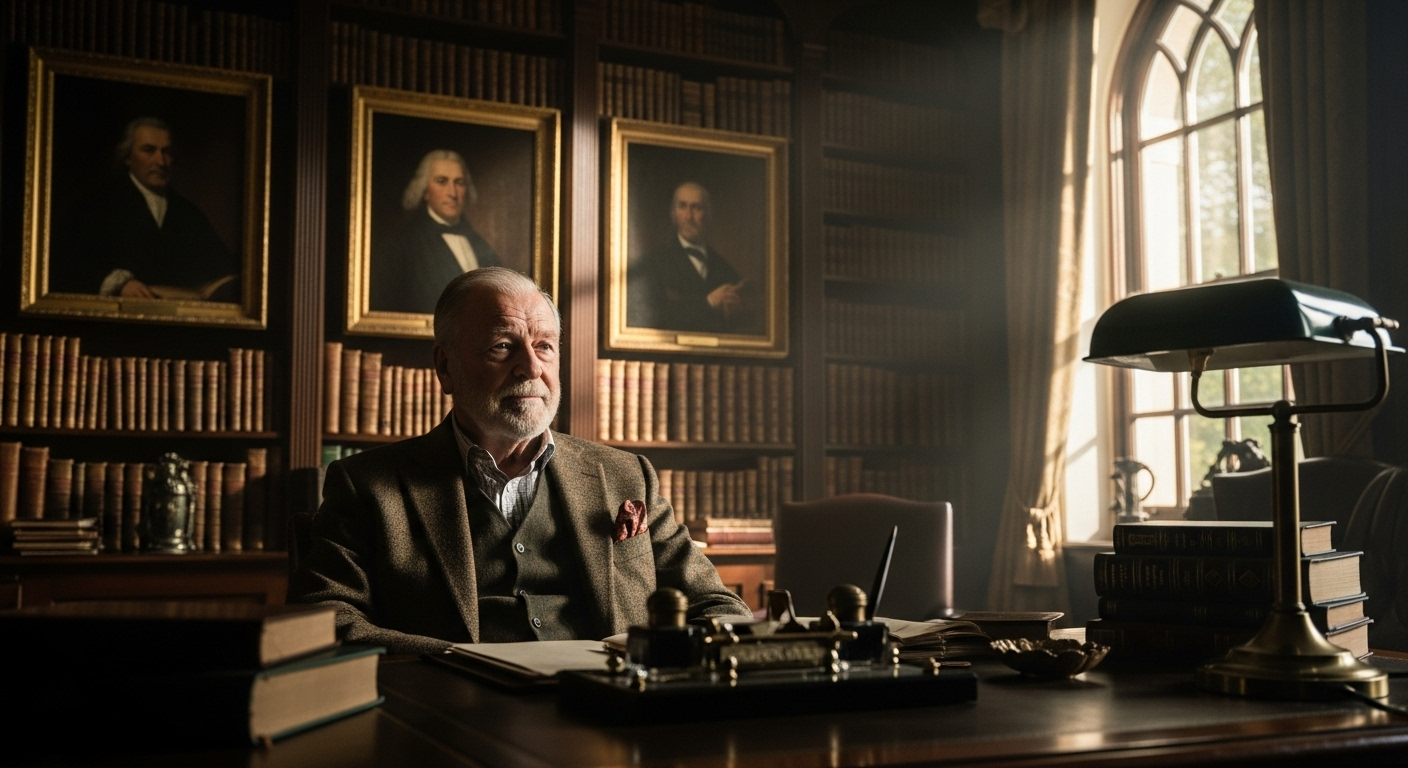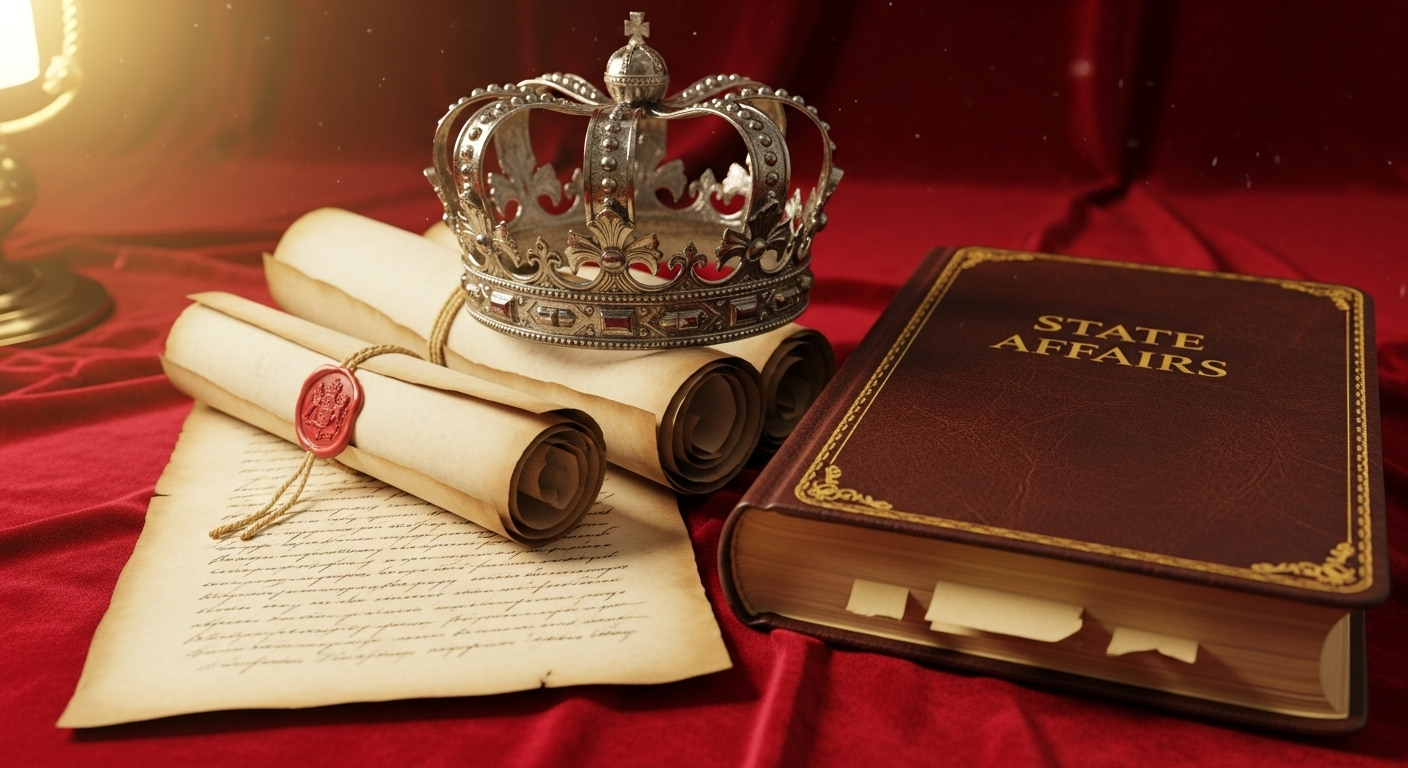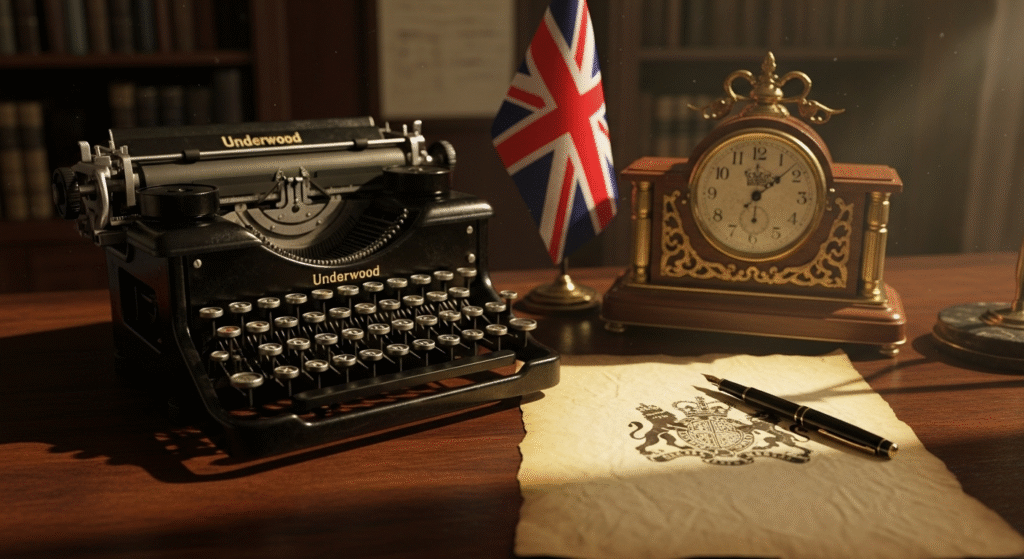Throughout British political history, few figures have demonstrated the remarkable ability to navigate royal transitions as skillfully as Winston Churchill. The legendary
statesman’s career spanned multiple reigns, requiring him to deftly adapt his loyalties and relationships as monarchs changed. This extraordinary political maneuvering is
explored in depth in Andrew Morton’s latest book, “Winston and the Windsors,” which reveals how Churchill maintained his influence across different royal administrations.

Churchill’s Early Royal Connections and Political Foundation
Churchill’s relationship with the British monarchy began early in his political career when he was taken under the wing of King Edward VII. This mentorship established a pattern that would define his approach to royal relationships throughout his long political life. Unlike other politicians who served under a single monarch, Churchill developed an unprecedented strategy of adapting to institutional change while maintaining personal connections.
His early experiences taught him a crucial lesson: successful political longevity required loyalty to the monarchy as an institution rather than to individual monarchs. This philosophy would prove invaluable as he navigated through some of the most turbulent periods in British history.
The relationship with King George V further solidified Churchill’s understanding of royal protocol and expectations. Morton describes this as a “long, sparky relationship” that helped Churchill refine his ability to balance personal friendship with political necessity.
How Winston Churchill Managed the Edward VIII Abdication Crisis
Perhaps the most challenging test of Churchill’s royal diplomacy came during the 1936 abdication crisis. His close friendship with King Edward VIII nearly destroyed his political career when he publicly supported the king’s desire to marry Wallis Simpson, a twice-divorced American.
Morton explains how Churchill had been “a good friend of Edward VIII, an advisor as a young man” who taught him “how to give a good speech.” This mentorship relationship meant Churchill felt obligated to support Edward’s cause in Parliament, where he was “howled down by fellow Members of Parliament.”
The political fallout was severe. Churchill’s unwavering support for Edward VIII isolated him from his parliamentary colleagues and damaged his reputation. However, this crisis also demonstrated his remarkable ability to pivot when circumstances changed.
When Edward VIII abdicated to become the Duke of Windsor, Churchill immediately shifted his allegiance to the new king, George VI. This transition wasn’t merely political opportunism—it reflected his deeper commitment to the monarchical system itself.
Building a Wartime Partnership with King George VI
The outbreak of World War II provided Churchill with the opportunity to demonstrate his adaptability once again. His relationship with the reluctant King George VI evolved into what Morton describes as a “bromance” that proved crucial during Britain’s darkest hours.
This partnership between Prime Minister Winston Churchill and King George VI became one of the most effective royal-political collaborations in British history. Their weekly meetings helped coordinate national morale efforts and maintained constitutional continuity during the war years from 1940-1945.
Churchill’s ability to support George VI, despite his previous loyalty to Edward VIII, showcased his political maturity. He understood that effective governance required putting institutional stability above personal relationships.
The wartime collaboration extended beyond mere protocol. Churchill and George VI developed genuine mutual respect, with the Prime Minister recognizing the king’s growth from a reluctant monarch into a confident leader who inspired the nation during the Blitz.
Churchill’s Devotion to Queen Elizabeth II
When King George VI died in 1952, Churchill faced his final royal transition. His relationship with the young Queen Elizabeth II represented the culmination of his decades of royal diplomacy. Morton suggests that Churchill was “in love, it’s fair to say, with the Queen.”
Their weekly audiences became legendary, with Churchill emerging with “tears of laughter rolling down his cheeks.” This relationship demonstrated how his earlier experiences had prepared him to mentor and support yet another monarch during their early reign.
The Queen, only 25 when she ascended the throne, benefited enormously from Churchill’s institutional knowledge and experience. His ability to provide continuity and guidance during her transition helped establish the foundation for her remarkably successful reign.
The Unique Nature of Churchill’s Royal Legacy
Morton emphasizes that no other politician or statesman has ever been “an integral part of a dynasty” the way Churchill was with the Windsors. This unprecedented relationship spanned five monarchs and fundamentally shaped modern British constitutional monarchy.
Churchill’s success lay in his understanding that the monarchy represented continuity and stability that transcended individual personalities. His ability to separate institutional loyalty from personal relationships allowed him to serve effectively under different monarchs with varying temperaments and capabilities.
His approach offers valuable lessons for modern politicians about adapting to changing leadership while maintaining core principles and institutional respect.

Lessons from Churchill’s Royal Diplomacy
Churchill’s decades-long relationship with the British royal family demonstrates the importance of institutional loyalty over personal allegiance. His ability to navigate royal transitions while maintaining political effectiveness provides a masterclass in constitutional governance.
The publication of Morton’s “Winston and the Windsors” offers new insights into these relationships and their impact on both British politics and the monarchy’s evolution. The book reveals how Churchill’s adaptability helped strengthen the constitutional framework that continues to serve Britain today.
For those interested in learning more about British political history and royal relationships, exploring Churchill’s complete political biography provides additional context for understanding his remarkable career.
Churchill’s legacy demonstrates that successful political leadership often requires the wisdom to evolve with changing circumstances while maintaining unwavering commitment to fundamental institutions and values.
Read also: White House agrees to cancel student debt for millions of borrowers
